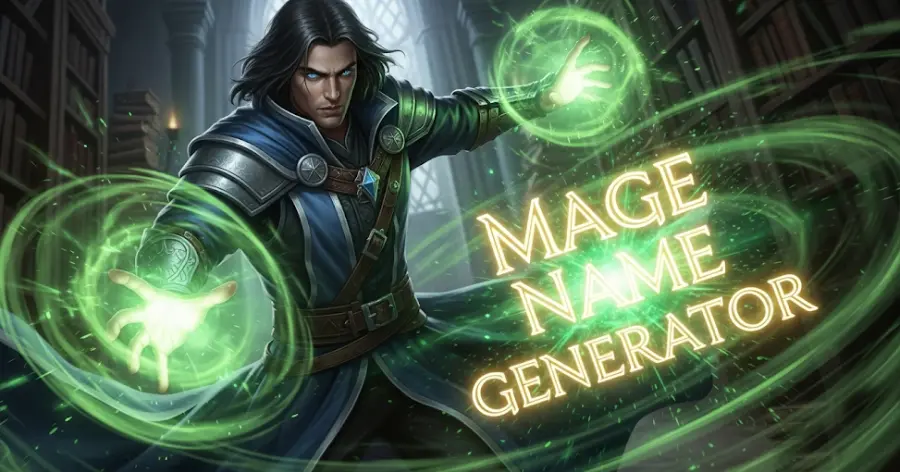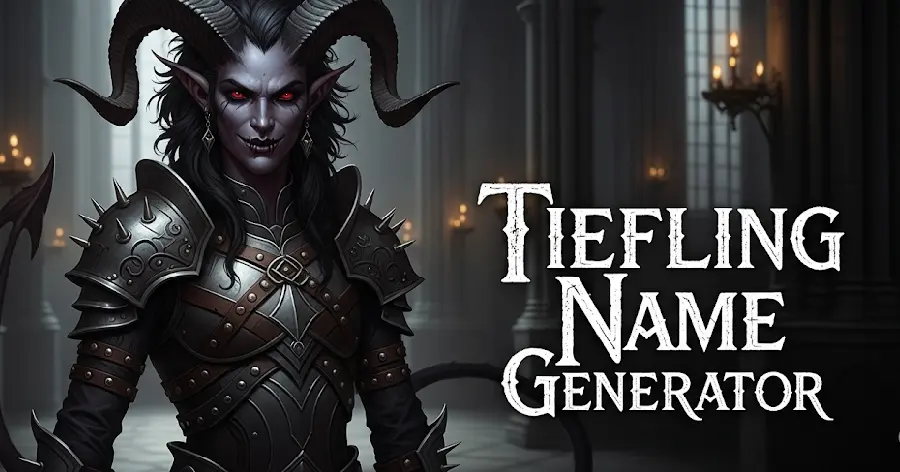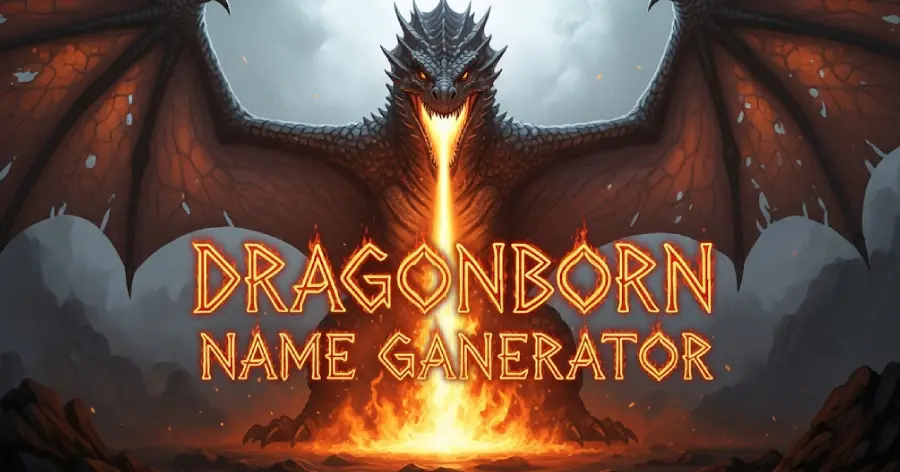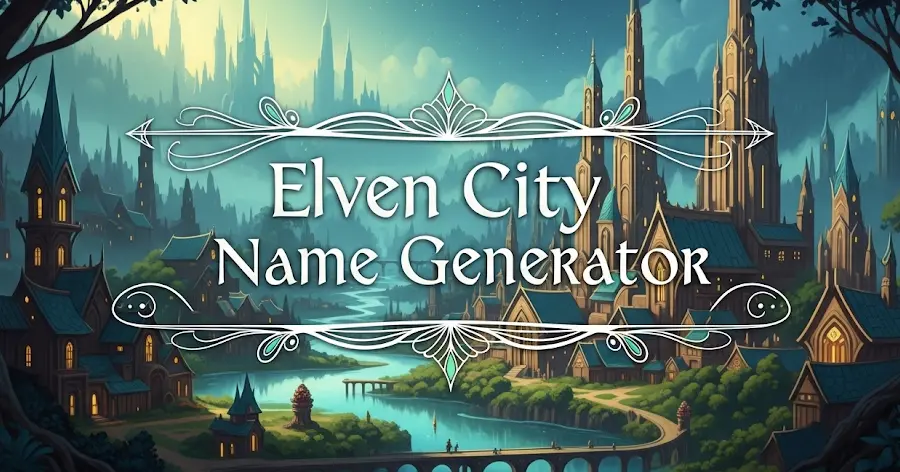Science Fiction Name Generator
Your universe is waiting. Let's give its heroes, aliens, and androids a name that sounds like it belongs in the future.
As a huge sci-fi fan, I know the feeling. You're building a whole new universe—a sprawling space opera, a gritty cyberpunk future, or a first-contact story. You've got your starships, your futuristic tech, and your alien species all mapped out. But when it comes to the people who inhabit this world, you hit a snag. What do you actually *call* someone from the year 2342? "John Smith" just doesn't feel right when he's piloting a faster-than-light starship through a nebula.
I created this Science Fiction Name Generator to solve that exact problem. A good sci-fi name has a specific feel to it. It can be sharp and technical, ancient and alien, or a simple designation for an artificial being. This tool is designed to give you a whole spectrum of these possibilities. It's packed with futuristic-sounding syllables, alien phonetic styles, and classic sci-fi tropes to help you create a roster of characters that feel like they truly belong in the universe you've built. Let's get to it.
🚀 Your Crew Roster
Your roster is empty. Find a name you like and click the ❤️ to add it to your crew!
🤖 Generate Your Sci-Fi Name
Ready to populate your universe? Click the button below to generate 8 unique sci-fi names for humans, aliens, and androids. Save your favorites and build your cast!
What Makes a Name Feel "Sci-Fi"?
Science fiction names have a different texture than fantasy names. Where fantasy names are often flowing, melodic, and rooted in ancient earth languages, sci-fi names tend to feel more constructed, technical, or distinctly 'other'. They reflect a future where cultures have blended, technology has influenced language, and we've encountered beings with entirely different ways of speaking.
The Sound of the Future
Sci-fi names often use harder consonants, sharper sounds, and a different rhythm. You'll see more letters like 'X', 'Z', 'K', and 'V'. There's also a common use of apostrophes (`K'vath`) and hyphens (`Jaq-El`) to suggest a language structure that is alien to our own. This creates a sense of authenticity; it feels like a name that has evolved over centuries or come from a completely different vocal structure.
Function Over Form
In many sci-fi settings, especially military or dystopian ones, names can be more functional than personal. A character might be known primarily by their rank and last name (Commander Shepard), or by a simple designation (TK-421). Androids and artificial beings often have model numbers or functional names before they choose their own. This contrast between cold, functional names and chosen, personal names is a powerful theme in science fiction that you can use in your own stories.
Names for Human Characters of the Future
Even centuries from now, humans will still be human. But their names might change, blending old traditions with new influences from across the galaxy. Here are some ideas for the human element of your story.
Starship Captains & Fleet Commanders
Grit-Covered Scavengers & Spacers
These are the people on the fringes—the mechanics, the smugglers, the miners. Their names are often short, practical, and sometimes just a single, earned nickname.
Alien Name Constructions
Creating a name for a non-human species is the ultimate world-building challenge. The name should sound truly 'other' and hint at the species' biology and culture.
Melodic & Wise Alien Names
For ancient, wise, or telepathic species, their names are often flowing, with soft vowels and complex syllables. Think of species like Vulcans from *Star Trek* or the Asari from *Mass Effect*.
Guttural & Warlike Alien Names
For warrior species like Klingons from *Star Trek* or the Krogan from *Mass Effect*, names should be harsh, guttural, and intimidating. They often feature hard consonants, double letters, and sharp endings.
💬 Transmissions from the Terminus Systems
❓ Frequently Asked Questions
🚀 Engage!
Your character now has a name—a handle that will be logged in starship registries, whispered in shadowy asteroid bars, and maybe even recorded in the annals of galactic history. A name is the first step in making a character feel real. We hope this tool has helped you launch your next great story.





